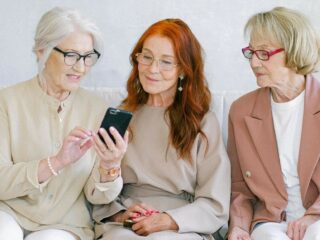Spigt: “Many scientists are very willing to share their knowledge. But if you share too much, the chances are your discoveries can no longer be protected, for instance by patents.” But surely as researcher you can’t keep everything to yourself? “Of course, you can share some information at a convention, but do this without blowing your own chances,” Spigt says. “If you have a loaf of bread, you can just show the middle, but leave out the crust. Everyone understands you are showing them a loaf of bread, but there are certain parts you keep to yourself for the time being.”

Ignorant
Keeping knowledge to yourself is something many researchers find difficult and Spigt can understand this – “What the heart thinks, the mouth speaks ” but he also sees the opportunities. He owes this insight to studying Biology in Amsterdam and Business Management at the Erasmus University in Rotterdam, and to his years of experience working for pharmaceutical companies. Spigt: “My heart lies with Biology, my head lies with Business Management.” The opportunities to make their discoveries economically useful that scientists miss out on, represent a value which the Director of TTO says runs to the billions worldwide. Not only do scientists with university centres make these mistakes, it also happens within large pharmaceutical companies. “Completely unnecessary!” says Spigt. “The realisation that discoveries in medical biology also have an economic interest, is something many scientists do not think about enough. This is due to different reasons: the pressure to publicize, ignorance, indifference. It’s not exactly that they’re not willing, it’s more that they are unaware of the possibilities, the do’s and dont’s. The reasoning is if I can just publish my findings quickly, the new medicine will be produced, and I don’t really need to establish a company for that. Well, that is a big mistake. Only by protecting scientific discoveries and developing them corporately, can they truly be made available to society.”
Intellectual property
TTO is crucial for increasing this awareness. Spigt: “What we say, is: guys, be careful! Before you send something off to a magazine, or before you present something to a convention… come and see us. One conversation can be enough and it is not complicated or scary. We are here to help you. We can advise you on how to handle your intellectual property, which doesn’t always have to lead to filing a patent application or establishing a company. It can also be a matter of claiming copyright or a trademark which provides enough protection.” The visible results of the TTO include the number of patents granted and the number of companies established. Spigt calls these the results at the back of the TTO process. However he finds the activities at the front equally important. Spigt: “You have to know what is happening in the scientific world. Where do we stand? How unique is this finding? Can we protect this discovery with a patent? And that insight can gain you a lot in the long run.”
TTO
TTO will focus on promoting valorization, secure ownership of inventions, and the dissemination of new findings into society. Either, existing companies start new developments based on our discoveries, or innovative companies are set up based on Erasmus MC research results, which may benefit from our Incubator facilities. In 2014, Erasmus MC Holding BV contained 31 companies. Two new companies were supported in their start-up in 2014. Our Incubator is located in the Rotterdam Science Tower and houses three companies. These companies employ more than 40 people. With that, the maximum capacity of the Incubator has been reached and an extension of the capacity is foreseen. Erasmus MC owns 113 patent families and we signed 8 license agreements in 2014. The Legal department evaluated 720 agreements, a plus of almost 15% over the previous year.



